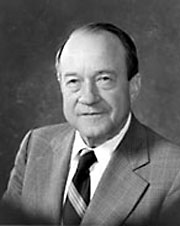Related Research Articles
This timeline of clothing and textiles technology covers the events of fiber and flexible woven material worn on the body; including making, modification, usage, and knowledge of tools, machines, techniques, crafts, and manufacturing systems (technology).

Burlington is a city in Alamance and Guilford counties in the U.S. state of North Carolina. It is the principal city of the Burlington, North Carolina Metropolitan Statistical Area, which encompasses all of Alamance County, in which most of the city is located, and is a part of the Greensboro-Winston-Salem-High Point CSA. The population was 50,042 at the 2010 census, which makes Burlington the 17th largest city in North Carolina. The Metropolitan Statistical Area population was over 150,000 in 2010.

Tights are a kind of cloth garment, most often sheathing the body from the waist to the toe tips with a tight fit, hence the name. They come in absolute opaque, opaque, sheer and fishnet styles — or a combination, such as the original concept of the American term pantyhose with sheer legs and opaque panty.

Stockings are close-fitting, variously elastic garments covering the leg from the foot up to the knee or possibly part or all of the thigh. Stockings vary in color, design, and transparency. Today, stockings are primarily worn for fashion and aesthetics, usually in association with mid-length or short skirts.

Pantyhose, called sheer tights, or tights in the United Kingdom and a few other countries, are close-fitting legwear covering the wearer's body from the waist to the toes. Mostly considered to be a garment for women and girls, pantyhose first appeared on store shelves in 1959 as a convenient alternative to stockings and/or control panties.
An intangible asset is an asset that lacks physical substance. Examples are patents, copyright, franchises, goodwill, trademarks, and trade names, as well as software. This is in contrast to physical assets and financial assets. An intangible asset is usually very difficult to evaluate. They suffer from typical market failures of non-rivalry and non-excludability.

Plum Creek Timber Company, Inc. was a timberland owner and manager, as well as a forest products, mineral extraction, and property development company, until it merged with Weyerhaeuser Company. It was headquartered in Suite 3100 at 601 Union Street in Seattle.
Spanx, Inc. is an American underwear maker focusing on shaping briefs and leggings, founded in Atlanta, Georgia. The company manufactures mainly pantyhose and other underwear for women and, since 2010, produces male underwear as well. Spanx specializes in foundation garments intended to make people appear thinner.

The textile industry is primarily concerned with the design, production and distribution of yarn, cloth and clothing. The raw material may be natural, or synthetic using products of the chemical industry.

The revenue recognition principle is a cornerstone of accrual accounting together with the matching principle. They both determine the accounting period in which revenues and expenses are recognized. According to the principle, revenues are recognized when they are realized or realizable, and are earned, no matter when cash is received. In cash accounting – in contrast – revenues are recognized when cash is received no matter when goods or services are sold.

A stocking frame was a mechanical knitting machine used in the textiles industry. It was invented by William Lee of Calverton near Nottingham in 1589. Its use, known traditionally as framework knitting, was the first major stage in the mechanisation of the textile industry, and played an important part in the early history of the Industrial Revolution. It was adapted to knit cotton and to do ribbing, and by 1800 had been adapted as a lace making machine.

The Merrow Sewing Machine Company, best known for inventing the overlock sewing machine, is a manufacturer of sewing machines. After the explosion of his gunpowder mill in 1837, in 1838 J.M. Merrow built a knitting mill on the same site. The company developed crocheting machines for its own use and by 1887 evolved to design, build and market sewing machines exclusively. During its early decades it was organized as a partnership under various names: established in 1838 as Joseph M. Merrow & Sons by J. Makens Merrow, then Pitkin, Merrow, & Co., renamed Merrow Manufacturing Co. in 1857, then Merrow and Millard in 1863, J.B. Merrow and Sons in 1870, and incorporated as The Merrow Manufacturing Company in 1893. Originally all of its manufacturing was done at facilities in Merrow, Connecticut, and then in Hartford, Connecticut, after 1894. The company is currently based in Fall River, Massachusetts.
Holeproof Hosiery was a Milwaukee, Wisconsin textile firm that was founded in 1901. The business was built primarily through earnings which were left to aggregate in the company. Its advertising expenses exceeded $500,000 after 1901, making it a brand name recognized worldwide. The business produced men's and women's hosiery, underwear, lingerie, and men's pajamas. From 1916 - 1925 Holeproof Hosiery sales increased from $2,037,000 to $9,220,000. Net sales totaled $24,435,342 in 1954.
Pretty Polly is a British brand of women's tights based in Nottingham, Nottinghamshire.

Ashok Todi(born 1958) is an Indian industrialist, heading the Kolkata-based Lux Industries group, a Rs. 37-billion company which is the market leader in India of the inner wear garment segment. The group both manufactures and markets innerwear.
Nissen Markers, aka J. P. Nissen Co was officially named the John P Nissen Jr Company is a privately held company which is still owned by the founding family based in Glenside, Pennsylvania. The company was founded in 1923 to manufacture markers for the textile industry and went on to receive numerous important patents on textile marking devices and methods. It is currently one of the largest manufacturers of industrial markers in the world.
Lux industries, previously known as Biswanath Hosiery Mills, is an Indian underwear company headquartered in Kolkata, West Bengal, India. Its offerings include various kinds of hosiery products for men, women and children. It is one of the oldest underwear companies in India.

Dalton Larkin McMichael, Sr. was an American textile executive and philanthropist. He was ranked among the top fifty most influential textile executives in the twentieth century by Textile World Magazine. He was inducted into the Class of 2003 American Textile Hall of Fame by the American Textile History Museum.
Ormond Shops was a chain of mall-based women's apparel shops in the United States from the 1930s until 1994.